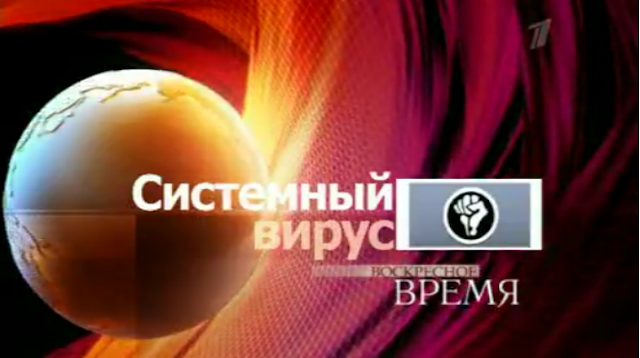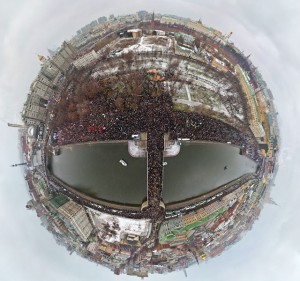December 17, the liberal opposition party Iabloko gathered some 1,500 supporters, while the same day a thousand of supporters of the Eurasian movement and of the Union of Russian citizens (ПрофсоюзГражданРоссии)gathered to denounce the Orangemanipulations[3] and to remind the need of a strong state. The next day,December 18, nearly 3,500 members of the Communist party got together.
In the end, December 24th has only been a success for Moscow city. In the provinces and in other Russian cities, the mobilization has weakened compared with the rallies of December 10th. In Vladivostok, the demonstration brought together 150 people, against 450 on December 10. In Novosibirsk, 800 people marched, compared to 3000 on December 10. In Chelyabinsk in in the Ural, the demonstrators were less than 500 in comparison with 1000 on December 10, and in Yekaterinburg 800 people demonstrated while 1.000 did on December 10. In Ufa, 200 people gathered, as many as on the 10th of December.
In the end, 500 people marched in Krasnoyarsk and 700 on December 10. Note that in St. Petersburg, one of the hearts of demonstrations as well as a liberal bastion ofRussia, about 3,000 to 4,000 people got together, compared to nearly 10.000 on December 10 (Source: Ria Novosti[4] and Ridus.ru[5]).
In the capital on December 24, three different meetingswere held. 2000 nationalists from the Liberal Democratic Nationalist Party of Vladimir Zhirinovsky and 3,000 supporters of the political analyst Sergei Kourganian have demonstrated separately in order to respond to the “orange plague”. In the end, and above all, 40,000 to 50,000 people gathered to what was probably the biggest opposition rally of the
Besides, one can wonder why the numerous Western journalists present at the venue, did not notice that thousands of young radical nationalists whistled or shouted “Russophobic” toward some speakers of different faiths and chanted slogans such as “The ethnicRussians forward”, or “Give a voice to ethnic Russians”. The least[7] we can say is this is a surprising double standard.
again gathered all the most unlikely political groups, radical nationalists together with fascist, liberals, Stalinists, activists or gays and lesbians and a few stars of the Russian show business. Surprisingly, the billionaire Prokhorov and the former Finance Minister Aleksei Kudrin (yet close to Vladimir Putin) were also present at the Moscow demonstration. Aleksei Kudrin spoke, adding to the cacophony and triggering a record of booing in the public. For the first time a very well known opposition Deputy has underlined this ssystemic disunity of the so–called opposition by leaving the demonstration before he even spoke.Same story regarding the political analyst Vitaly Ivanov, for whom the opposition to Vladimir Putin is a nebulous backstairs gossip.
The next big day of demonstration is supposed to take place in February, i.e. one month before the presidential election on March 4, 2012. However, it is difficult to imagine how Putin would not be reelected, first of all given the economic situation of the country. The GDP growth should reach almost 4.5% in 2011 and probably as much in 2012. The unemployment rate fell to 6.3%, the country’s debt is lower than 10% of the GDP and the exchange reserves are of about 500 billion dollars. Inflation is dropping and estimated this year of 6.5% i.e. its lowest level in 20 years.Russia is now the 10th world biggest economy in nominal GDP and the 6th global economy purchasing power ratio wise.According to analyzes of the British research center (CBER), Russia should be the 4th world economy around 2020.
It is therefore very difficult to imagine how the person held directly responsible for this major economic recovery by the majority of the Russian citizens, could not be reelected. Of course the wave of discontent could be reflected in the presidential election scores of March 2012. Putin may neither be elected in the first round with 71% of the votes, as he was in 2004, nor with 72% of the votes, like Dmitry Medvedev in 2008 while Russiawas in a total economic euphoria. The score will probably be closer to the one of March 2000 (Vladimir Putin had won with 52% of the votes) or there may even be a second round. If this is the case, Putin would probably face the candidate of the Communist Party, Gennady Zyuganov. A tough choice for the Westerners, but that would perfectly reflect the electoral trend initiated by the last general elections in Russia where the left wing parties increased their electoral weight.






